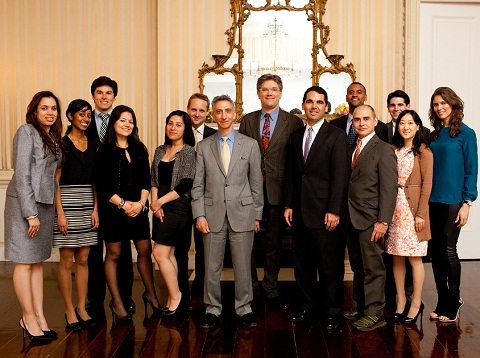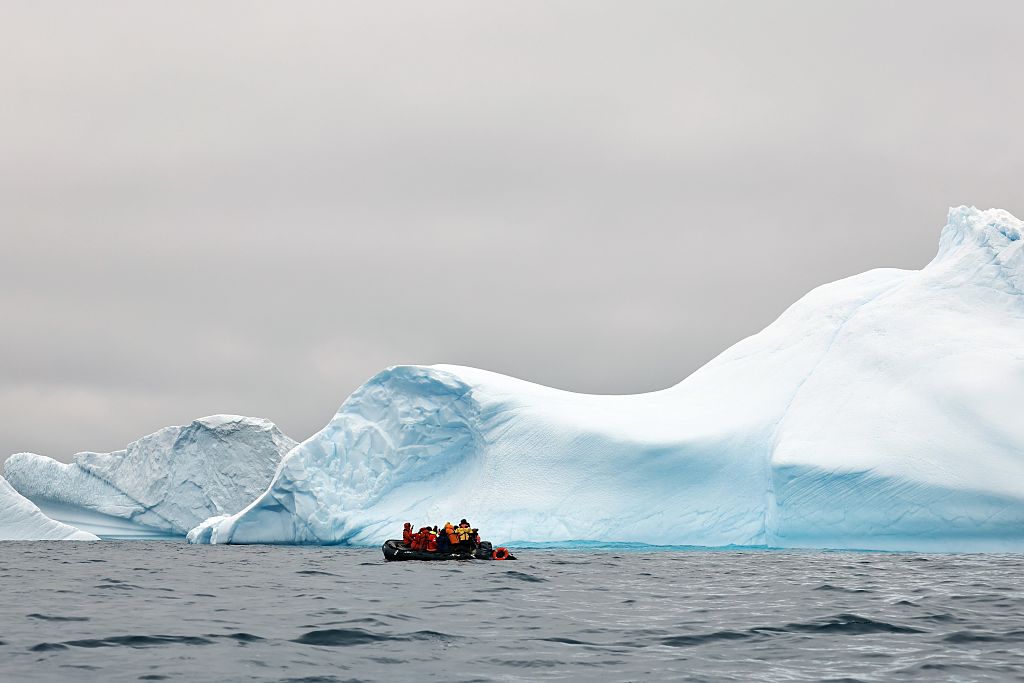AQ Fifth-Year Anniversary Celebration
AQ Fifth-Year Anniversary Celebration
Americas Quarterly hosted former President of Chile Ricardo Lagos and former President of Peru Alejandro Toledo for a discussion on the political and economic changes and challenges in the Western Hemisphere.
Speakers:
- Ricardo Lagos, former President, Republic of Chile
- Alejandro Toledo, former President, Republic of Peru
- Christopher Sabatini, Senior Director of Policy, Americas Society and Council of the Americas; Editor-in-Chief, Americas Quarterly (Moderator)
Summary
Over the last two decades, Latin America on the whole has made tremendous economic, political, and social progress. Economic growth rates are unprecedentedly high in some countries (Peru, for example, has averaged 7 to 9 percent growth annually in recent years), and democratic institutions continue to improve. Yet, inequality, sustainability, and social inclusion challenges remain major hurdles. In honor of its five-year anniversary, Americas Quarterly hosted former President of Chile Ricardo Lagos and former President of Peru Alejandro Toledo—both AQ editorial board members—for a discussion on the political and economic changes and challenges in our hemisphere.
Polarization in Venezuela
The two presidents began with their analysis of Venezuela and its upcoming presidential election. Today, Venezuela is a polarized country, divided into a pro-Chávez movement and an anti-Chávez vote, with Henrique Capriles Radonski representing the opposition. Elected in 1999, President Hugo Chávez has used constitutional referendums to enact legislation and increase presidential power. Lagos cited the example of Chávez to describe how populist leaders can manipulate weak democratic systems to gain reelection and turn a seemingly free country into one under authoritarian rule.
This is why, Lagos argued, democracy is a process that needs to be strengthened every day, whether through stronger political parties, free media and access to information, or laws preventing incumbent political leaders from using public funds for political campaigns. In addition, given that the October presidential election may be a close race, Lagos recommended auditing it by holding a pre-election that would provide a preliminary winner and also possibly serve as a control mechanism for fraud during the actual election.
Sino-U.S. Rivalry Continues
The increasing presence of China and India in the region—including in economic, political, and military spheres—has prompted concerns among experts and politicians. One question is whether the steep increase in Chinese investment in Latin America will erode U.S. influence and possibly lead to a regional power struggle between the two countries. Lagos and Toledo insisted that a neo-colonialist power struggle over resources must be avoided. Instead, the United States and Latin America should work within the changing regional paradigm to form a strong regional alliance based on shared cultural and ethnic characteristics as well as economic ties. The ties extend to the U.S. population, where, as Toledo stated, “17 percent of the voting population in the U.S. is of Latin descent, and predictions are that by 2050 it will reach 42 percent.”
Furthermore, Latin America emerged relatively unscathed from the 2008 world economic crisis, creating a new global image and opening the door for increased global assertiveness. According to Toledo, “Latin America is the most promising continent in the world economy in the next 10 to 15 years.” With its rising global importance, Lagos highlighted his support for a stronger and broader “three-way partnership” among the Asia, Latin America, and the United States that would allow all parties to work together rather than compete for the spoils of a two-way partnership.
The Latin America Forecast
As both presidents discussed, it is important that the region prepare for “rainy days,” both economically and politically. Though the last two decades have led to the emergence of a new middle class, many people remain unable to escape poverty. To sustain growth and keep democracy in full function, the U.S. and Latin America must develop a joint agenda to promote social inclusion, strengthen democratic institutions—especially freedom of the press—and improve political transparency and accountability.

The staff of Americas Quarterly.







